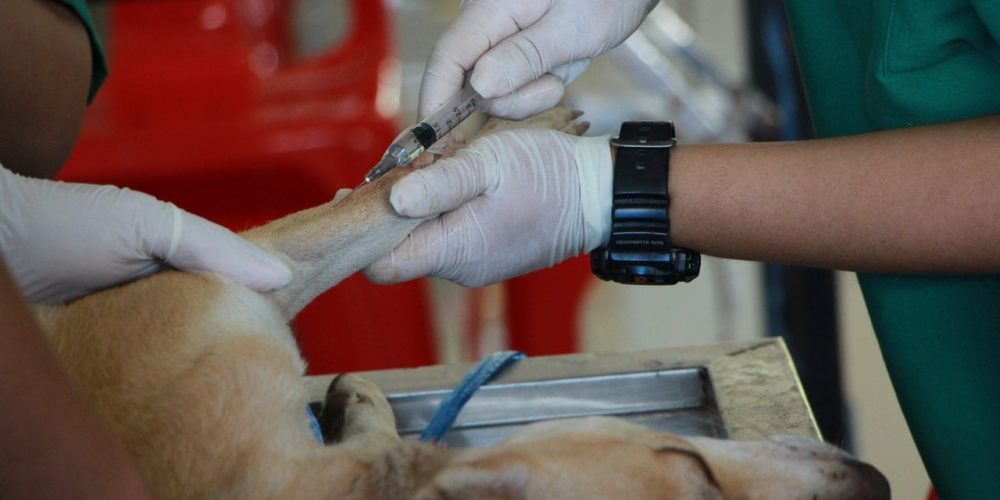When you established your veterinary practice, chances are you did not anticipate that your business would be on the property division list for your divorce.
Your veterinary practice is marital property (i.e., property and assets either spouse acquired during the marriage) under Colorado
Note: Even if you started your practice before you married, and it remained separately titled, your veterinary practice’s increase in value during the marriage is marital property.
This can make the division or retention of your practice much more complicated.

Have Your Practiced Valued Before You Divide It
If you started your practice after you were married, it is marital property and, as such, is subject to division. When dividing your veterinary practice during a divorce, you may decide to:
- Keep the practice and pay your spouse a fair share of the value of the business.
- Sell the practice to someone else and divide the proceeds with your spouse.
Before deciding on either option, determine the value of your practice first. Divorce is difficult enough, but it can get even more complicated when it comes to valuing or appraising your practice.
Consider Hiring a Professional Business Valuator
You may find it necessary to hire a business valuator, also called an “appraiser,” who knows how to accurately value a veterinary practice.
Your spouse may also hire an appraiser who may take a different approach to
You may end up with conflicting valuations, but the court makes the ultimate decision on the matter.
Standard Approaches Used to Determine The Value of a Veterinary Practice
Professional
Income Approach
This method bases the value on projected future earnings. Since future earnings are unknown, usually some average of historic earnings, increased or decreased by a growth or deterioration factor into the future, are used to estimate future earnings.
Market Approach
Another way of valuing a veterinary practice is
Asset Approach
The asset approach (also called the net asset approach) is another common method of valuing a business. This approach values a practice on its tangible assets, like property, buildings, or equipment — minus its liabilities.
Usually, this method is used when there is no apparent goodwill in the business and there is a possibility of liquidation or it is unlikely entity can continue operating.
Hybrid Method
Often referred to as the excess earnings method, this uses a combination of the net asset approach coupled with a separate calculation of the goodwill value.
An appraiser will determine the current value of the net assets, then add a goodwill component for the entity’s intangible (goodwill) value.
Things like relationships with customers, how the public sees your brand, proprietary knowledge, etc., are some of the components of the intangible value in a going concern.
Retain a Lawyer with Experience Valuing Businesses in a Divorce
Besides having a professional business valuator, it is also important for you to hire a family law attorney who has experience in handling divorces involving business valuations.
Your lawyer can discuss the best possible way for you to value your veterinary practice.
Business valuations are not limited to the four standard approaches discussed above. So, your lawyer may have recommendations for using other methods to value your veterinary practice.
Additionally, since business valuations are complex, your lawyer may cite case law or use examples of cases similar to your situation.
Whether you want to continue to own the veterinary practice or want proceeds from the practice, your lawyer will protect your interests as the courts divide the property during the divorce.
Shapiro Family Law has experience in this area. Contact us for more information.
The Court Has the Final Say in Marital Property Distribution
The court handling your divorce must approve the division of all of your marital property, including your veterinary practice.
Colorado is an equitable distribution state when it comes to dividing marital property in a divorce. This means that a judge divides marital property in a fair and equitable manner.
This is why it is important to have a divorce attorney to protect your interests and ensure that you receive a fair division of marital property, as well as maintaining any separate property after the divorce.
Do You Need A Valuation of Your Veterinarian Practice?
Shapiro Family Law has years of experience handling divorces involving business valuations. We work with business valuation experts who have established themselves in their field, and who can testify in court about your case, if necessary.
If you are concerned about the division of your business or other marital property in your divorce, Shapiro Family Law can help you with this situation.
In addition to property division, Shapiro Family Law handles other aspects of a divorce, such as
If you want a team of family law attorneys who handles a wide variety of cases, call Shapiro Family Law today at 303-695-0200 to schedule an appointment with one of our lawyers.
We serve families in the Denver area and throughout Colorado.
